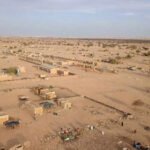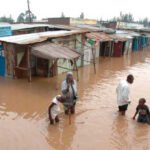Women’s social status restricts their participation in decision making on the use of extractive revenues in Africa, Publish What You Pay (PWYP) said in a synthesis report.
The report, titled Increasing Women’s Voice and Participation in Extractive Governance: The case of Mozambique, Tanzania and Uganda, noted that women’s participation in extractive governance remains low with men being the more active voices.
The World Bank had reported that the benefits from the extractives industry have predominantly gone to men while the social, economic, and environmental costs fall most heavily on women.
In Mozambique, the Local Consultative Councils, tasked with recommending which local projects should be funded with the local production tax revenue, fail to meet the mandated participation quotas of 30 percent and 20 percent for women and youths, according to the report.
‘When women and youths are successful in representing themselves and expressing opinions on suitable projects for local funding, their suggestions are generally not included in the final list, which tends to reflect the ideas put forth by the men’, the report said.
Additionally, the report noted a lack of clarity around the fiscal calculations and distribution processes of revenue accruing from the extractive sector to communities.
With regard to Uganda, it noted that payments to landowners and lawful occupants displaced due to mining operations were irregular because they were payable by law only to those holding formalised land rights.
‘Most smallholders of land in Karamoja hold only informal/customary rights, with women holding fewer formalised rights than men and thus being more likely to be excluded from compensation’, the report found.
The study also noted that most women have lower levels of literacy and education and hence lack the necessary information on extractive revenue specifically and governance generally.
In Tanzania, PWYP said it observed extractive-related policies tend to focus on including women as labourers or providers of supporting local content with limited or absent quota requirements for women members on administrative/regulatory bodies.
Tanzania’s Mining Commission has only one female member while the Local Content Committees do not have requirements for women members, according to the the report.
‘No policies or laws appear to pledge that benefits or revenues from extractives industries should be directed towards the betterment of women’s livelihoods, or otherwise under-served or typically-excluded populations’, it stated.
Also, 102 women groups in the Geita region were found to have received 466 million shillings from a loan programme funded by extractive revenues.
‘However, there is no follow-up evaluation to assess how beneficial these programmes are to women’, the report declared, citing little reliable verification that extractive revenues are monitored and accounted for.
The report called for improved extractive laws to allow for more women participation.
The report also advocated increased access to information or women and increased transparency and accountability in extractive revenue.
PWYP is a global movement of civil society organisations working to make oil, gas and mineral governance open, accountable, sustainable, equitable and responsive to all people.
Source: PWYP
Photo source: WOCinTech Chat





